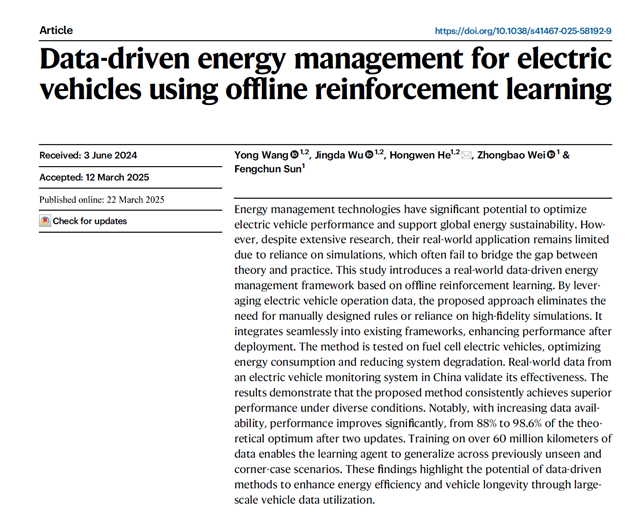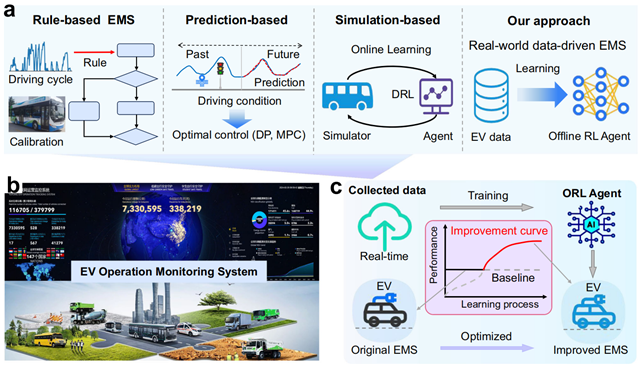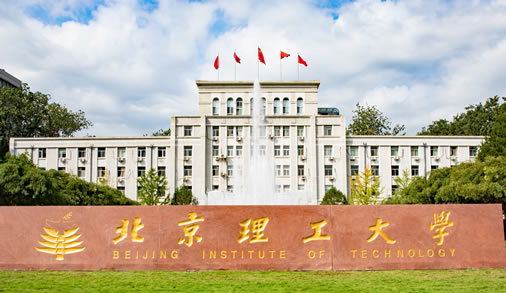

Updated: 2025-04-10

Academician Sun Fengchun and professor He Hongwen's team from the School of Mechanical Engineering and Vehicle Engineering at the Beijing Institute of Technology (BIT) published a research paper in the top international journal Nature Communications on March 22.
The paper, titled Data-driven energy management for electric vehicles using offline reinforcement learning, breaks the traditional mode of control strategy design by professional engineers. By utilizing large-scale operational data collected by electric vehicle monitoring and management systems, the team has developed an intelligent energy management system with autonomous learning and continuous evolution abilities. This provides an innovative solution for big data applications and control system development in electric vehicles.
Against the backdrop of the continuous advancement of the "dual carbon" strategic goals and the rapid popularization of new energy vehicles, electric vehicle energy management has become a key technology for enhancing vehicle range and system lifespan. However, traditional methods heavily rely on manual rule design and high-precision simulation models, leading to long development cycles, high costs and difficulty in adapting to the complex conditions of real-world roads. In response to this technological challenge, the research team has proposed a data-driven approach to electric vehicle energy management.
This approach adopts a "data-driven + intelligent learning" technical route, where the energy management intelligent agent can directly learn the optimal control strategy from data. This method not only eliminates the reliance on expert-designed control strategies but also eliminates the need to establish high-precision vehicle simulation models for strategy training, significantly optimizing the strategy development process. Moreover, this method is independent of data quality, allowing it to learn approximate optimal strategies from suboptimal data and to optimize control strategies under random data conditions.

The overall technical roadmap of the data-driven electric vehicle energy management method based on large-scale data
The research team achieved the integration of real operational data from electric vehicle monitoring and management systems with simulation model data by autonomously developing a data-enhanced digital model for electric vehicles. They successfully constructed a large-scale electric vehicle dataset covering various operating conditions and containing high-dimensional multi-source data features.
The team proposed an offline reinforcement learning method that combines behavioral cloning with a discriminator mixed regularization term, addressing the distribution shift issue in policy learning. This method can maintain effective constraints on policy learning while achieving performance optimization.
Through learning validation based on real vehicle operational data, this approach achieved a dual improvement in energy consumption levels and system lifespan on fuel cell electric vehicles. It also possesses continuous self-evolution abilities. After just two rounds of data learning, performance improved from initial 88 percent optimality to 98.6 percent. Furthermore, this method demonstrates good compatibility and can seamlessly integrate into existing energy management systems based on rules or other methods.














